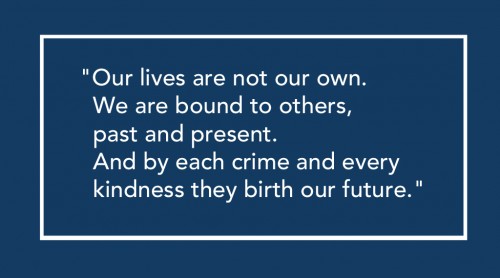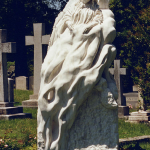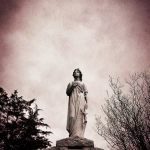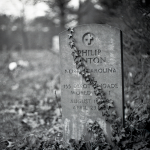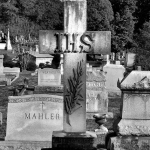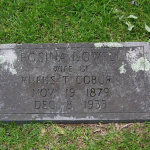Cemetery Art – 9/04/12
Oakwood Cemetery, Raleigh NC
Sit for a Spell- Three
One grand great life throbs through earth’s giant heart,
And mighty waves of single Being roll
From nerve-less germ to man, for we are part
Of every rock and bird and beast and hill,
One with the things that prey on us, and one with what we kill.
— Oscar Wilde, Panthea
Meditation – I Have A Rendezvous With Death
I Have A Rendezvous With Death by Alan Seeger
I have a rendezvous with Death
At some disputed barricade,
When Spring comes back with rustling shade
And apple-blossoms fill the air—
I have a rendezvous with Death
When Spring brings back blue days and fair.
It may be he shall take my hand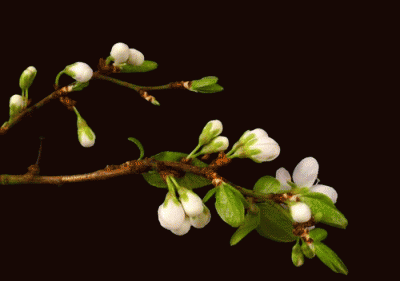
And lead me into his dark land
And close my eyes and quench my breath—
It may be I shall pass him still.
I have a rendezvous with Death
On some scarred slope of battered hill
When Spring comes round again this year
And the first meadow-flowers appear.
God knows ’twere better to be deep
Pillowed in silk and scented down,
Where Love throbs out in blissful sleep,
Pulse nigh to pulse, and breath to breath,
Where hushed awakenings are dear…
But I’ve a rendezvous with Death
At midnight in some flaming town,
When Spring trips north again this year,
And I to my pledged word am true,
I shall not fail that rendezvous.
Meditation – Her Death And After
Her Death And After by Thomas Hardy
‘TWAS a death-bed summons, and forth I went
By the way of the Western Wall, so drear
On that winter night, and sought a gate–
The home, by Fate,
Of one I had long held dear.
And there, as I paused by her tenement,
And the trees shed on me their rime and hoar,
I thought of the man who had left her lone–
Him who made her his own
When I loved her, long before.
The rooms within had the piteous shine
The home-things wear which the housewife miss;
From the stairway floated the rise and fall
Of an infant’s call,
Whose birth had brought her to this.
Her life was the price she would pay for that whine–
For a child by the man she did not love.
“But let that rest forever,” I said,
And bent my tread
To the chamber up above.
She took my hand in her thin white own,
And smiled her thanks–though nigh too weak–
And made them a sign to leave us there;
Then faltered, ere
She could bring herself to speak.
“‘Twas to see you before I go–he’ll condone
Such a natural thing now my time’s not much–
When Death is so near it hustles hence
All passioned sense
Between woman and man as such!
“My husband is absent. As heretofore
The City detains him. But, in truth,
He has not been kind…. I will speak no blame,
But–the child is lame;
O, I pray she may reach his ruth!
“Forgive past days–I can say no more–
Maybe if we’d wedded you’d now repine!…
But I treated you ill. I was punished. Farewell!
–Truth shall I tell?
Would the child were yours and mine!
“As a wife I was true. But, such my unease
That, could I insert a deed back in Time,
I’d make her yours, to secure your care;
And the scandal bear,
And the penalty for the crime!”
–When I had left, and the swinging trees
Rang above me, as lauding her candid say,
Another was I. Her words were enough:
Came smooth, came rough,
I felt I could live my day.
Next night she died; and her obsequies
In the Field of Tombs, by the Via renowned,
Had her husband’s heed. His tendance spent,
I often went
And pondered by her mound.
All that year and the next year whiled,
And I still went thitherward in the gloam;
But the Town forgot her and her nook,
And her husband took
Another Love to his home.
And the rumor flew that the lame lone child
Whom she wished for its safety child of mine,
Was treated ill when offspring came
Of the new-made dame,
And marked a more vigorous line.
A smarter grief within me wrought
Than even at loss of her so dear;
Dead the being whose soul my soul suffused,
Her child ill-used,
I helpless to interfere!
One eve as I stood at my spot of thought
In the white-stoned Garth, brooding thus her wrong,
Her husband neared; and to shun his view
By her hallowed mew
I went from the tombs among
To the Cirque of the Gladiators which faced–
That haggard mark of Imperial Rome,
Whose Pagan echoes mock the chime
Of our Christian time:
It was void, and I inward clomb.
Scarce had night the sun’s gold touch displaced
From the vast Rotund and the neighboring dead
When her husband followed; bowed; half-passed,
With lip upcast;
Then, halting, sullenly said:
“It is noised that you visit my first wife’s tomb.
Now, I gave her an honored name to bear
While living, when dead. So I’ve claim to ask
By what right you task
My patience by vigiling there?
“There’s decency even in death, I assume;
Preserve it, sir, and keep away;
For the mother of my first-born you
Show mind undue!
–Sir, I’ve nothing more to say.”
A desperate stroke discerned I then–
God pardon–or pardon not–the lie;
She had sighed that she wished (lest the child should pine
Of slights) ’twere mine,
So I said: “But the father I.
“That you thought it yours is the way of men;
But I won her troth long ere your day:
You learnt how, in dying, she summoned me?
‘Twas in fealty.
–Sir, I’ve nothing more to say,
“Save that, if you’ll hand me my little maid,
I’ll take her, and rear her, and spare you toil.
Think it more than a friendly act none can;
I’m a lonely man,
While you’ve a large pot to boil.
“If not, and you’ll put it to ball or blade–
To-night, to-morrow night, anywhen–
I’ll meet you here…. But think of it,
And in season fit
Let me hear from you again.”
–Well, I went away, hoping; but nought I heard
Of my stroke for the child, till there greeted me
A little voice that one day came
To my window-frame
And babbled innocently:
“My father who’s not my own, sends word
I’m to stay here, sir, where I belong!”
Next a writing came: “Since the child was the fruit
Of your passions brute,
Pray take her, to right a wrong.”
And I did. And I gave the child my love,
And the child loved me, and estranged us none.
But compunctions loomed; for I’d harmed the dead
By what I’d said
For the good of the living one.
–Yet though, God wot, I am sinner enough,
And unworthy the woman who drew me so,
Perhaps this wrong for her darling’s good
She forgives, or would,
If only she could know!
Cemetery Art – 8/12/12
Idealized human depictions in cemetery art abound. I suppose they’re meant to represent a world without death. Yet it’s clear that time and the elements ravage even what is supposed to have been immutable.
[portfolio_slideshow id=473]
Meditation – Nothing But Death
Nothing But Death by Pablo Neruda
There are cemeteries that are lonely,
graves full of bones that do not make a sound,
the heart moving through a tunnel,
in it darkness, darkness, darkness,
like a shipwreck we die going into ourselves,
as though we were drowning inside our hearts,
as though we lived falling out of the skin into the soul.
And there are corpses,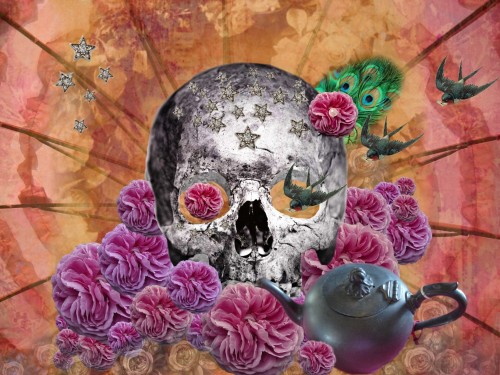
feet made of cold and sticky clay,
death is inside the bones,
like a barking where there are no dogs,
coming out from bells somewhere, from graves somewhere,
growing in the damp air like tears of rain.
Sometimes I see alone
coffins under sail,
embarking with the pale dead, with women that have dead hair,
with bakers who are as white as angels,
and pensive young girls married to notary publics,
caskets sailing up the vertical river of the dead,
the river of dark purple,
moving upstream with sails filled out by the sound of death,
filled by the sound of death which is silence.
Death arrives among all that sound
like a shoe with no foot in it, like a suit with no man in it,
comes and knocks, using a ring with no stone in it, with no
finger in it,
comes and shouts with no mouth, with no tongue, with no
throat.
Nevertheless its steps can be heard
and its clothing makes a hushed sound, like a tree.
I’m not sure, I understand only a little, I can hardly see,
but it seems to me that its singing has the color of damp violets,
of violets that are at home in the earth,
because the face of death is green,
and the look death gives is green,
with the penetrating dampness of a violet leaf
and the somber color of embittered winter.
But death also goes through the world dressed as a broom,
lapping the floor, looking for dead bodies,
death is inside the broom,
the broom is the tongue of death looking for corpses,
it is the needle of death looking for thread.
Death is inside the folding cots:
it spends its life sleeping on the slow mattresses,
in the black blankets, and suddenly breathes out:
it blows out a mournful sound that swells the sheets,
and the beds go sailing toward a port
where death is waiting, dressed like an admiral.Nothing But Death by Pablo Neruda
There are cemeteries that are lonely,
graves full of bones that do not make a sound,
the heart moving through a tunnel,
in it darkness, darkness, darkness,
like a shipwreck we die going into ourselves,
as though we were drowning inside our hearts,
as though we lived falling out of the skin into the soul.
And there are corpses,
feet made of cold and sticky clay,
death is inside the bones,
like a barking where there are no dogs,
coming out from bells somewhere, from graves somewhere,
growing in the damp air like tears of rain.
Sometimes I see alone
coffins under sail,
embarking with the pale dead, with women that have dead hair,
with bakers who are as white as angels,
and pensive young girls married to notary publics,
caskets sailing up the vertical river of the dead,
the river of dark purple,
moving upstream with sails filled out by the sound of death,
filled by the sound of death which is silence.
Death arrives among all that sound
like a shoe with no foot in it, like a suit with no man in it,
comes and knocks, using a ring with no stone in it, with no
finger in it,
comes and shouts with no mouth, with no tongue, with no
throat.
Nevertheless its steps can be heard
and its clothing makes a hushed sound, like a tree.
I’m not sure, I understand only a little, I can hardly see,
but it seems to me that its singing has the color of damp violets,
of violets that are at home in the earth,
because the face of death is green,
and the look death gives is green,
with the penetrating dampness of a violet leaf
and the somber color of embittered winter.
But death also goes through the world dressed as a broom,
lapping the floor, looking for dead bodies,
death is inside the broom,
the broom is the tongue of death looking for corpses,
it is the needle of death looking for thread.
Death is inside the folding cots:
it spends its life sleeping on the slow mattresses,
in the black blankets, and suddenly breathes out:
it blows out a mournful sound that swells the sheets,
and the beds go sailing toward a port
where death is waiting, dressed like an admiral.
Cemetery Art – 8/06/12
Angels are probably the most popular image in cemetery art. Here we see three examples from the bereft to the sexy.
We’ll feature more angels in the future.

